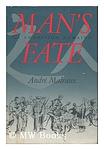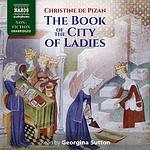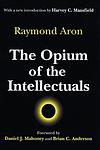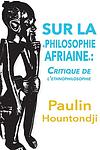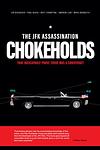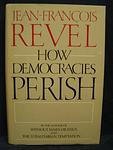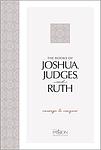The Greatest French "Political" Books of All Time
Click to learn how this list is calculated.
This list represents a comprehensive and trusted collection of the greatest books. Developed through a specialized algorithm, it brings together 285 'best of' book lists to form a definitive guide to the world's most acclaimed books. For those interested in how these books are chosen, additional details can be found on the rankings page.
Genres
The "Political" category of books encompasses works that explore the theory, practice, and history of government and politics. These books may cover topics such as political ideologies, political systems, political institutions, political movements, and political leaders. They may also examine the relationship between politics and other areas of society, such as economics, culture, and international relations. Political books can be both informative and thought-provoking, offering readers insights into the complexities of the political world and the challenges of governing in a democratic society.
Countries
Date Range
Reading Statistics
Click the button below to see how many of these books you've read!
Download
If you're interested in downloading this list as a CSV file for use in a spreadsheet application, you can easily do so by clicking the button below. Please note that to ensure a manageable file size and faster download, the CSV will include details for only the first 500 books.
Download-
1. The Second Sex by Simone de Beauvoir
This influential work explores the treatment and perception of women throughout history, arguing that women have been repressed and defined only in relation to men. The author presents a detailed analysis of women's roles in society, family, work, and in the creation of their own identities. She discusses the concept of 'the other' and how this has been used to suppress women, while also examining the biological, psychological, and societal impacts of this oppression. The book is a seminal text in feminist theory, challenging traditional notions of femininity and calling for equality and freedom for women.
-
2. Democracy in America by Alexis de Tocqueville
This influential book offers an in-depth analysis of the strengths and weaknesses of 19th century American democracy. The author, a French political thinker, provides a detailed examination of the democratic process and its impact on society, politics, and the economy. The work highlights the importance of civil society, local institutions, and the spirit of equality in ensuring the stability of democracy. It also delves into the dangers of majority tyranny, the potential for democratic despotism, and the critical role of religion and morality in sustaining a democratic nation.
-
3. Man's Fate by Andre Malraux
Set in 1920s Shanghai during a time of political upheaval, the novel explores the existential themes of life, death, and the human condition through the experiences of a group of revolutionaries. The narrative follows their struggles and sacrifices for their cause, the Communist revolution, and their inevitable confrontation with their own mortality and the harsh realities of life. The book delves into the complexities of political ideologies, human relationships and the constant struggle between hope and despair.
-
4. The Social Contract by Jean-Jacques Rousseau
"The Social Contract" is a philosophical work that discusses the concepts of sovereignty and the social contract. The author argues that all men are born free, but everywhere they are in chains, suggesting that society and its rules are a form of enslavement. However, he also posits that a social contract, where individuals come together to form a collective or a society, is necessary for the preservation of their freedom. This contract allows for the creation of a sovereign that is made up of the collective and expresses the general will, which is always right and tends towards the public utility.
-
5. The Mandarins by Simone de Beauvoir
"The Mandarins" is a novel that explores the personal and political lives of a group of intellectuals in post-World War II France. The narrative delves into their struggles with ethical dilemmas, political ideologies, and personal relationships in a rapidly changing world. The book is known for its exploration of existentialism and feminism, providing a vivid portrayal of the human condition and the complexities of freedom.
-
6. The Book of the City of Ladies by Christine De Pizan
"The Book of the City of Ladies" is a classical work in which the author, through allegorical characters, builds an imaginary city for women to illustrate their significant contributions to society. The book is a defense of women, arguing against the popular notion of the time that women were inferior to men. It showcases the author's deep knowledge of the past, referencing numerous notable women from history and mythology, emphasizing their virtues, intelligence, and moral fiber.
-
7. The Case of Comrade Tulayev by Victor Serge
"The Case of Comrade Tulayev" is a political novel set in the Stalinist era of the Soviet Union. The story begins with the murder of a high-ranking Soviet official, Comrade Tulayev, which sets off a series of events leading to the arrest and execution of innocent people. It provides an in-depth exploration of the paranoia, fear, and injustice that characterized Stalin's regime, showing the human cost of political purges and the absurdity of the bureaucratic system.
-
8. Émile by Jean-Jacques Rousseau
The book in question is a seminal work in the field of education and philosophy, presenting a comprehensive treatise on the nature of man and the importance of education tailored to the individual's developmental stages. The author argues for a system of education that allows for the natural development of a child's abilities and senses, advocating for learning through experience rather than traditional academic instruction. The narrative follows the growth of a fictional boy, illustrating the author's educational philosophy through his upbringing, which emphasizes moral and emotional development alongside intellectual growth. The work challenges conventional notions of education and has had a profound impact on modern educational theory.
-
9. The Rebel by Albert Camus
"The Rebel" is a philosophical exploration of rebellion and revolution. It dissects the nature and origins of rebellion, arguing that it arises from a basic human refusal to accept injustice. The book delves into the many forms rebellion can take, from personal revolt to political revolution, and examines the consequences and ethics of each. The author also critically evaluates the rebellious attitudes of various historical figures and movements, highlighting the potential for rebellion to either affirm or destroy human dignity.
-
10. Discipline and Punish by Michel Foucault
This book delves into the historical evolution of the penal system, examining how Western societies have transitioned from a regime of violent, public physical punishment to a more subtle form of surveillance and control. It introduces the concept of the "panopticon," a metaphor for modern disciplinary societies that exercise power through observation and normalization rather than through overt physical coercion. The work explores the relationship between power, knowledge, and social control, arguing that disciplinary mechanisms are embedded in various institutions, such as schools, hospitals, and prisons, shaping individuals and maintaining order in society.
-
11. The Provincial Letters by Blaise Pascal
"The Provincial Letters" is a series of 18 letters written by a philosopher and mathematician, where he defends his friend Antoine Arnauld, an opponent of the Jesuits, who was on trial before the faculty of theology in Paris for his controversial religious works. The letters mockingly criticize the morals and ethics of Jesuits, and the casuistry they used to justify moral laxity, while also debating various philosophical and theological issues. The letters are considered a masterpiece of French prose and had a significant influence on the French language.
-
12. Days In The Caucasus by Banine
"Days In The Caucasus" is a captivating memoir that follows the personal journey of a young woman living in the Caucasus region during the early 20th century. The author beautifully recounts her experiences growing up in a multicultural society, filled with vivid descriptions of the diverse landscapes, traditions, and people she encounters. From her childhood adventures to her first love, the author provides an intimate glimpse into a world on the brink of change, capturing both the joys and challenges of life in the Caucasus.
-
13. The Opium Of The Intellectuals by Raymond Aron
The book in question is a critical examination of the prevailing political ideologies and intellectual trends of the mid-20th century, particularly focusing on the seductive nature of Marxist thought among European intellectuals. The author argues that these intellectuals often embraced Marxism not for its empirical validity but as a secular religion, an "opium" that provided a comforting sense of certainty and moral superiority. The work challenges the dogmatic adherence to ideological orthodoxy and calls for a more skeptical, empirical approach to social and political analysis, advocating for the values of liberal democracy and the importance of individual freedom over utopian visions.
-
14. A Harlot High And Low by Honoré de Balzac
The novel delves into the underbelly of Parisian society, following the life of a cunning and ambitious protagonist who navigates the treacherous waters of crime and power. As a sequel to a previous work, it continues to explore themes of social climbing and moral ambiguity, presenting a complex web of characters from different social strata, including a high-class courtesan whose fortunes rise and fall dramatically. The narrative weaves a tale of deception, love, and betrayal, offering a critical look at the corruption and hypocrisy of 19th-century France, while also examining the intricate relationships between money, politics, and social status.
-
15. The Order of Things by Michel Foucault
"The Order of Things" is a philosophical exploration of the historical changes in the human sciences, including economics, natural history, and philology. The author delves into the concept of 'epistemes' or the unconscious rules that govern the way people perceive the world, and how these have changed over the centuries. The book challenges the idea that knowledge has progressively improved over time, instead suggesting that each era has its own unique framework for understanding and interpreting the world.
-
16. Le Vieux Nègre Et La Médaille by Ferdinand Oyono
"Le Vieux Nègre Et La Médaille" by Ferdinand Oyono is a thought-provoking novel set in colonial Africa, exploring the complexities of power dynamics and racial discrimination. The story follows the life of an elderly African man who, after receiving a medal from the French government for his loyalty during World War II, becomes disillusioned with the empty promises of equality and justice. Through vivid storytelling and poignant symbolism, the book sheds light on the harsh realities faced by African individuals under colonial rule.
-
17. Portrait Du Colonisé Suivi De Portrait Du Colonisateur by Albert Memmi
"Portrait Du Colonisé Suivi De Portrait Du Colonisateur" is an insightful and thought-provoking exploration of the complex dynamics between the colonized and the colonizer in the context of French colonialism. Through a series of powerful portraits, the author delves into the psychological, social, and cultural aspects of both parties, shedding light on the dehumanizing effects of colonization on the colonized and the inherent contradictions within the colonizer's mindset. This book offers a nuanced analysis of the power dynamics and the lasting impact of colonialism, making it a significant contribution to postcolonial literature.
-
18. Sur La Philosophie Africaine by Paulin Hountondji
"Sur La Philosophie Africaine" is a thought-provoking exploration of African philosophy by Paulin Hountondji. The book challenges the prevailing notion that African thought is inherently inferior to Western philosophy, advocating for a reevaluation of African intellectual traditions. Hountondji critically examines the impact of colonialism on African philosophy and argues for the development of a truly African philosophical framework that embraces cultural diversity and challenges Eurocentric biases. Through his insightful analysis, Hountondji highlights the richness and complexity of African thought, making a compelling case for its recognition and inclusion in the global philosophical discourse.
-
19. The Spirit Of The Laws by Montesquieu
"The Spirit of the Laws" is a foundational text in the fields of political theory and sociology, which analyzes the factors that drive the laws and rules governing different types of governments. The author explores how laws are shaped by the nature and principle of each government type, such as republics, monarchies, and despotisms, as well as by the climate, geography, economy, and customs of the region. This work is particularly renowned for articulating the theory of separation of powers, a concept that has deeply influenced modern democratic systems by advocating for dividing governmental power among separate branches to prevent any one branch from becoming too dominant.
-
20. Black Skin, White Masks by Frantz Fanon
The book explores the complex effects of colonialism on the identities and psyches of black people. It delves into the psychological and social impacts of racism, analyzing how the internalization of colonial stereotypes leads to a fractured sense of self among the colonized. The author argues that black people are forced to wear "white masks" to navigate a world dominated by white values and expectations, leading to significant psychological distress and identity conflicts. The work is a critical examination of race, identity, and the lingering effects of colonial oppression.
-
21. The Conspiracy by Paul Nizan
"The Conspiracy" is a novel that delves into the lives of a group of young, disillusioned intellectuals in 1930s France, who are grappling with the oppressive structures of bourgeois society and their own existential crises. As they become increasingly aware of the social injustices around them, they are drawn towards radical political action. The narrative explores themes of alienation, the search for meaning, and the tension between ideology and personal relationships, ultimately leading to a plot to overthrow the established order. The characters' internal struggles reflect the broader political and social turmoil of the era, capturing the spirit of a generation on the brink of profound change.
-
22. How Democracies Perish by Jean François Revel
This book provides a deep analysis of the threats faced by democracies, specifically from totalitarian regimes. The author argues that democracies are often their own worst enemies, being too tolerant and indecisive, which can lead to their downfall. He further discusses how democracies can be manipulated by totalitarian regimes through propaganda and misinformation. The book serves as a warning and a call to action for democratic societies to recognize these threats and take steps to defend their values and institutions.
-
23. The Red Notebook by Benjamin Constant
The novel in question revolves around the protagonist's introspective journey through his own memories and emotions, as he reflects on his passionate and tumultuous love affair with an enigmatic woman. Through a series of diary entries, the protagonist delves into the depths of his psyche, exploring themes of obsession, self-deception, and the complexities of the human heart. The narrative unfolds as a candid examination of the protagonist's inner turmoil and the impact of his intense romantic experiences on his personal growth and understanding of love.
-
24. The Conquerors by Andre Malraux
"The Conquerors" is a novel set against the backdrop of the 1925-1926 Chinese revolution, exploring the complexities of political upheaval and the human spirit. The narrative follows a European protagonist who becomes entangled in the revolutionary fervor sweeping through colonial Asia. As he aligns himself with communist insurgents, he grapples with the moral ambiguities of violent struggle and the personal costs of ideological commitment. The story delves into themes of power, betrayal, and the existential search for meaning amidst chaos, capturing the tumultuous atmosphere of a society on the brink of transformation.
-
25. Man's Hope by Andre Malraux
Set against the backdrop of the Spanish Civil War, the novel delves into the complexities of political and personal struggle, following a diverse group of individuals united by their commitment to the Republican cause. These characters, ranging from idealistic volunteers to seasoned militants, grapple with the brutal realities of warfare, the ideological conflicts within their own ranks, and the sacrifices demanded by their shared pursuit of a hopeful vision for humanity. Through their intertwined stories, the narrative explores themes of courage, camaraderie, and the often tragic nature of revolutionary fervor, painting a vivid portrait of a pivotal moment in 20th-century history.
Reading Statistics
Click the button below to see how many of these books you've read!
Download
If you're interested in downloading this list as a CSV file for use in a spreadsheet application, you can easily do so by clicking the button below. Please note that to ensure a manageable file size and faster download, the CSV will include details for only the first 500 books.
Download

